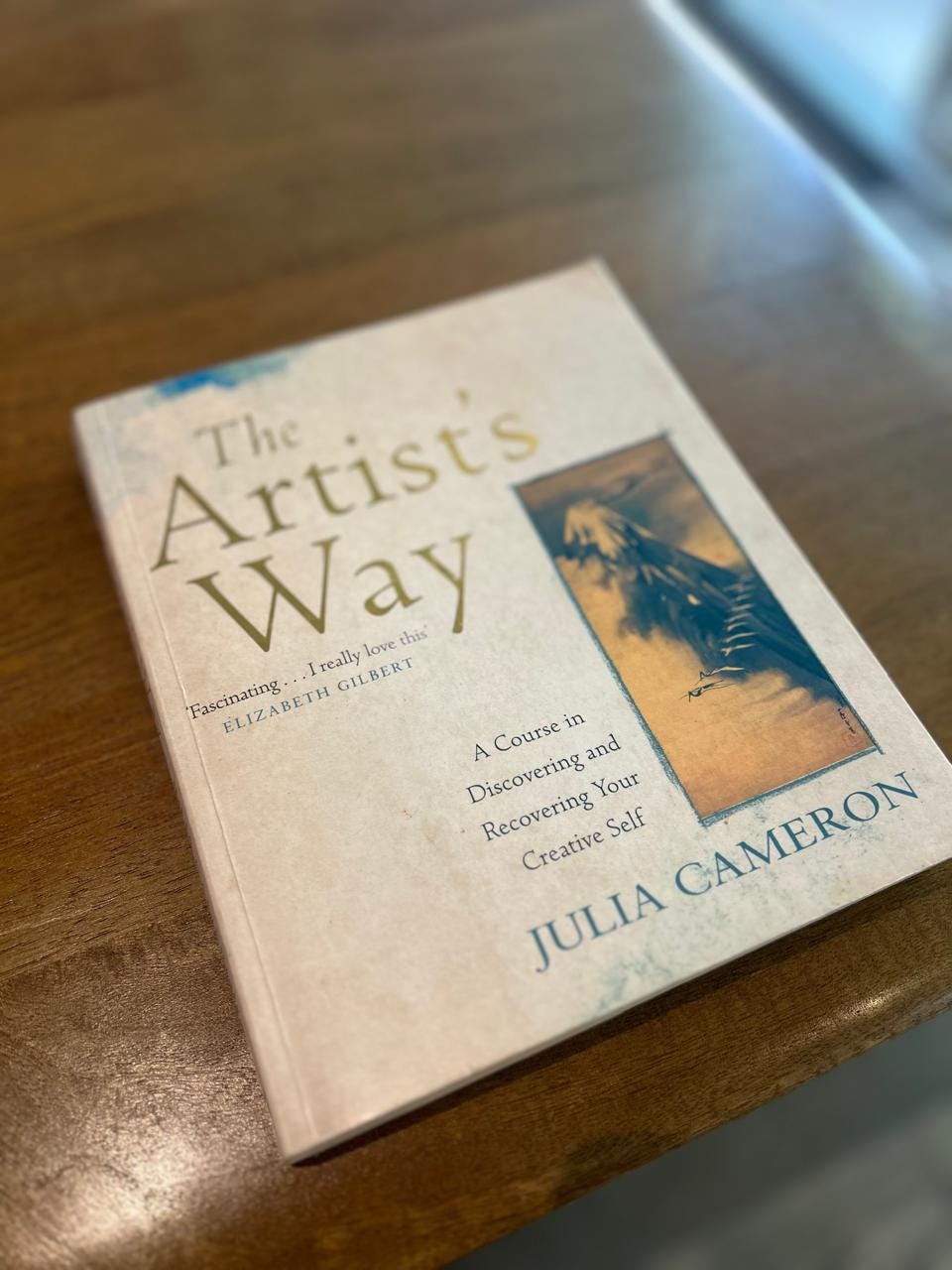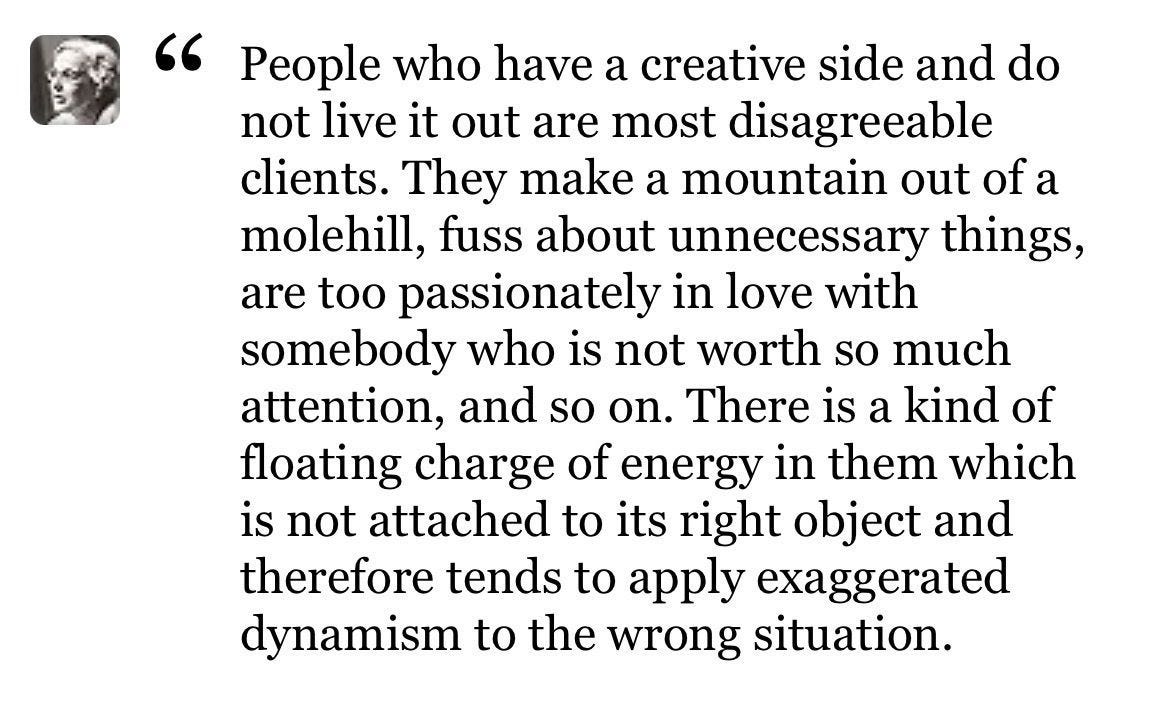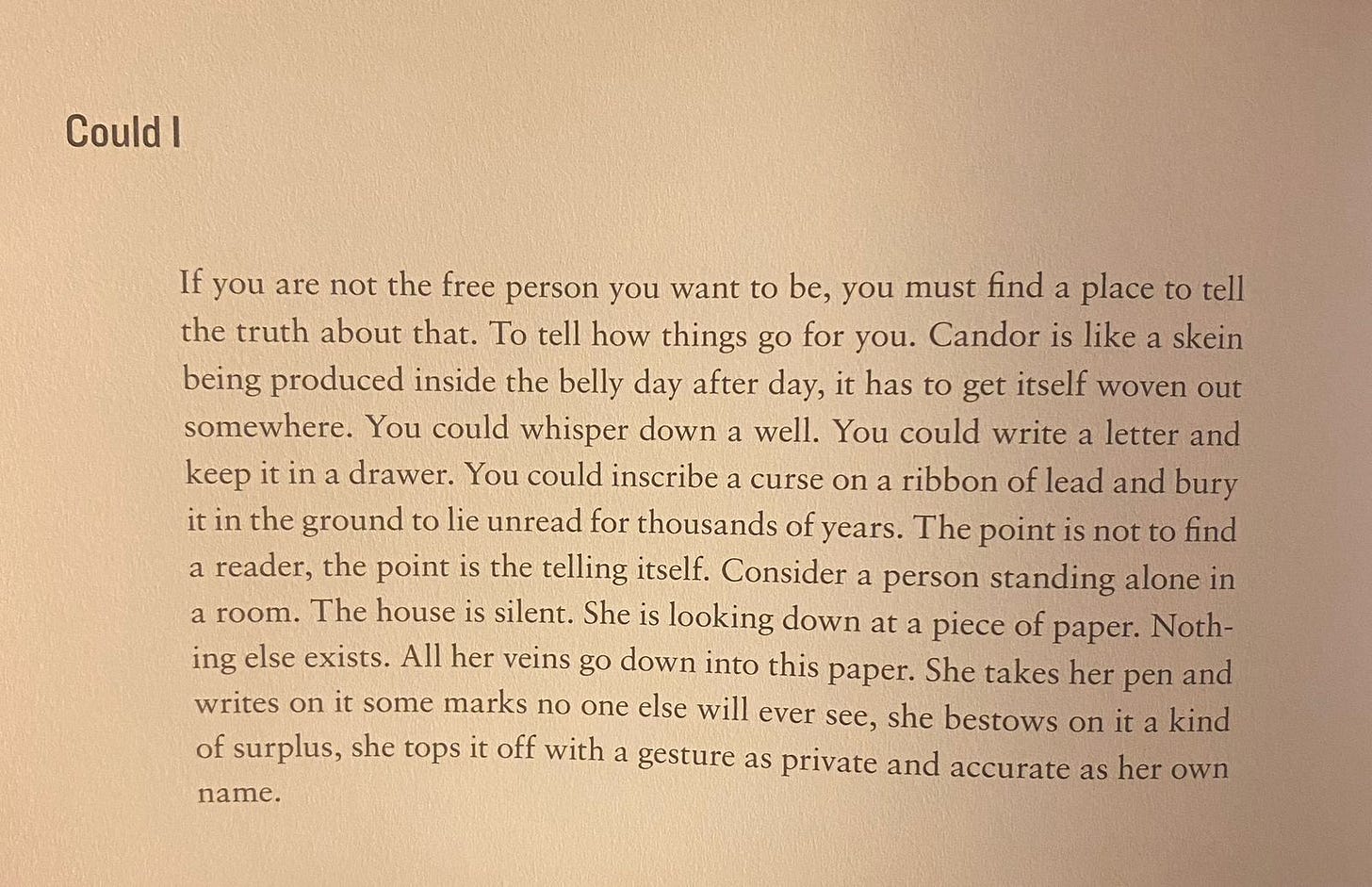When I was in my early twenties, my friend asked me to go to a “creativity workshop” with her. Why she asked me, of all people, was beyond me. I wasn’t a creative person. I was someone who was studying law, barely able to draw a stick figure let alone create a work of art. I didn’t make music. I didn’t dress creatively. I wasn’t quirky or cool, in the way “creative people” are. I guessed no-one else was free that night and said yes.
What I remember of the workshop is piecemeal, perhaps because I blacked out several times from embarrassment. There was a portion where we had to dance to music with eight different types of rhythm in a very brightly lit room, and another where we had to partner up with a stranger and stare them in the face without breaking eye contact for as long as possible. My partner cried. It was weird.
I had no idea what any of this had to do with creativity. Despite most of these exercises making my blood run cold and my palms sweat, I must admit I did actually rather enjoy the whole fiasco. It made me feel… alive. Connected.
The segment I remember the most vividly was when the facilitator Emeli (whom I happened to loosely know) asked everyone to place themselves on a spectrum of creativity. Chairs should be placed closest to her if you considered yourself not creative at all and closest to the other end of the room if you deemed yourself highly creative. Without hesitation I sat at Emeli’s feet.
Emeli singled me out immediately, suggesting that I should move my chair to the other side of the room.
Why? You might be wondering. Why would Emeli think such a thing? The answer is truly quite mortifying.
Despite the fact that Em and I knew each other only through friends of friends and had only ever hung out in infrequent group contexts, we must have chatted about poetry. My love of reading it and, apparently, of writing it. For reasons that now escape me, I must have thought it cool/appropriate/normal to send her some of the poems I had written via Facebook messenger. I didn’t even have this woman’s number. Lord have mercy.
But bless (and curse) beautiful Emeli, she told the room of strangers that she had read my poems, that they were wonderful and that I was, in fact, a creative person.
I didn’t drop out of law school the next day to become a poet, but I did start to wonder if perhaps I’d been a little harsh on myself. Em’s encouragement lit a flame of private possibility that maybe I wasn’t such a creative dunce after all. That maybe, just maybe, my inner world had some creative value.
In 2021 (the year of my great breakdown/enlightenment/ego death/metamorphosis that I can’t shut up about) my friend Jack, a screenwriter who has exclusively pursued the creative arts since we all graduated high school in 2005-2006, encouraged me to read The Artist’s Way by Julia Cameron. It’s life changing, he told me before lending me his battered copy, which I still have in my bookshelf here in Mexico City (sorry Jack, I’ll return it one day, I promise). For many, The Artist’s Way will be old news, but I hope that at least for some it’s new news!
As I worked through each chapter, I dutifully wrote my morning pages and took myself on artist dates. I worked through the exercises assigned each week, one of which was to “time travel”. Julia instructed me to:
list three old champions of your creative self worth. This is your Hall of Champions, those who wish you and your creativity well. Be specific. Every encouraging word counts. Even if you disbelieve a compliment, record it. It may well be true.
And so there was Emeli, immortalised in my Hall of Champions, a decade after the creativity workshop.
The Artist’s Way also introduced me to the concept of the “shadow artist.”
Unfortunately, many artists never receive critical early encouragement. As a result, they may not know they are artists at all… Timid young artists adding parental fears to their own, often give up their sunny dreams of an artistic career, settling into the twilight world of could-have-beens and regrets. There, caught between the dream of action and the fear of failure, shadow artists are born.
To parents, I would also add (some) school teachers and societal pressure.
In my experience, my parents (especially my mum) encouraged my artistic expression. She encouraged drama class, my writing and actually really made me question whether I wanted to go to law school (it’ll be terribly boring, she said). I absolutely insisted that I did. Of course, she knew me better than I knew myself. She knew I would hate it. And I did. The larger demon at play was the tap-dancing, approval-seeking gremlin within (read more about the gremlin here).
Julia continues:
Fledgling artists may be encouraged to be art teachers or to specialise in crafts with the handicapped. Young writers may be pushed towards lawyering, a talky, wordy profession, or into medical school because they’re so smart.
In my case, this was abundantly true as my obsession with literature, poetry and the dramatic arts was swiftly sidelined when I achieved the marks for law school (haha, never mind about NIDA or journalism, just kidding!) My school, my teachers, by that stage my parents and I were all 100% on board with law school. I was so thrilled with myself (and all the academic accolades) I couldn’t sign up fast enough to the driest 5-year degree known to man.
Interestingly, Julia posits that shadow artists often choose shadow careers – those close to the desired art, even parallel to it, but not the art itself. To some degree, I think practising family law was a version of this for me (storytelling) and copywriting has been a move closer towards the dream, yet still adjacent. I guess the key here is that I see my work as supplemental to my creative ambitions. I’m writing this Substack, I’m working on a manuscript, I write my little poems. Working for myself gives me the space to do all of those things, whether they bring fame and fortune isn’t the point. The creative output is the point.
The other issue with shadow artists, is that they tend to be the ones who give the meanest feedback about other people’s art. These are the people who roll their eyes at someone’s attempts to share their work with the world (what a shit painting, what a basic poem, etc). And it doesn’t take a genius to work out why. People who risk nothing deem themselves free to judge without impunity.
Since I’ve started creating and sharing, I find myself having deeper and deeper wells of good will for other people doing the same, even if I don’t vibe with the art itself. I’m genuinely stoked for people creating and putting it out there, knowing that there is an audience for everything, and that vulnerability is the best (maybe the only) balm we have for cynicism.
I read this quote recently, from a Jungian psychoanalyst Marie-Louise von Franz (1915 -1998) and I cannot stop thinking about it:
I cannot stop thinking about it because for the longest time I was apt to make mountains out of molehills (this is what I believe we call loving drama) and I was all too often passionately in love with somebody not much worth my attention and so on.
Since I started redirecting my energy (my life force!) into creativity, those “dramatic” parts of my life seemed to ease. I seemed to ease. People in my life began remarking on it relatively consistently. You’ve mellowed, they would tell me.
I thought this was mostly down to “healing” (a word that has been co-oped by psuedo-shaman culture, but remains useful nonetheless) old attachments wounds and so on. Perhaps that is part of it, but perhaps an even bigger part of it was (and is) simply engaging my own creativity. The floating charge of energy is finding its rightful home and, finally, it can rest. It can stop making trouble.
I planned to write much more on this topic but I want to keep your attention, which requires keeping these essays relatively brief. Instead, I’ll leave you with a piece of writing from poet Ann Carson that sums it all up better than I can:







One of the worst things we can do to ourselves is thinking we’re not creative - or that we shouldn’t use our creativity in all areas of life, including work.
Great text, Tessa!
Even though we’re completely different and you don’t know me, I also write about this: not just dreaming of change (at work) but actually learning how to apply it.
It’s something I’ve learned by doing and it’s by reading texts like yours that we can keep on getting inspiration to continue. “The creative output is the point”
Yes indeed!
Found you through a note, stayed because of the way you write 😊
Always putting your heart out there lovey, I admire you, strong woman 🙏